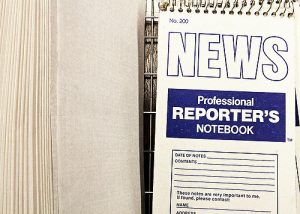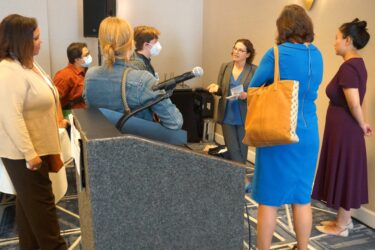
One challenge when covering medical conferences is that, depending on your publication’s needs, you often must conduct many interviews on the fly both with presenters and with attendees at the sessions.
Since many other people also are vying for the presenters’ attention, you might only be able to get in a few short questions after a session.
Even when you can arrange an interview at a different time, you may only have 10 minutes because of that person’s schedule or your own (like another session to rush off to). Moreover, sometimes in the fast-paced environment of conference coverage, you may not have had much time to familiarize yourself their research or presentation. That means you need to prepare questions that are generic enough to apply to most studies or presentations but still useful in obtaining quality quotes that add substance and value to your story.
It’s no easier to also get quotes from outside experts or other attendees. Even as someone who is extroverted and outgoing, I find it intimidating to walk up to strangers immediately after a presentation and ask them to comment on it for my story. It may take three to five attempts before I find someone who agrees to talk. (And sometimes, admittedly, I don’t find anyone and have to give up.)
Again, in these situations, time is very short. An attendee may only have a few minutes at most before they have to leave, so you have to make it count. And you can’t forget essentials, such as asking for their disclosures.
For all these reasons, it’s helpful to have a set of ready questions for each type of interviewee. You can memorize them or keep them on a card or the inside of your notebook or a note in your phone. Consider these as your quick and dirty questions that don’t require you to be very familiar (yet) with the research or demand a lot of the speaker but still can get you a worthwhile quote.
Most of the time, what you need is the clinical significance of the findings or (if there is no immediate clinical significance), what makes the findings important or surprising. If it is CME-type presentation instead of a research abstract, you typically want to know the most important take-home clinical point that the presenter wants attendees to walk away with, or the key point an attendee you are interviewing got from the presentation.
A new tip sheet at AHCJ’s Medical Studies core topic section can help get you started. This list will need some tweaking, based on the conference, speaker, research, session, type and other considerations.








